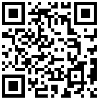In the competitive world of the workplace, every job seeker is akin to a finely honed swordsman, eagerly anticipating the optimal moment to embrace the challenge. Amidst this arena brimming with both competition and opportunities, there exists an overlooked force that subtly influences the success or failure of job pursuits - that is, people's quirky personality traits. These seemingly inconsequential characteristics frequently become the unanticipated key determinants of professional managers' triumph.
Before diving into this phenomenon, let's first unpack the notion of "quirkiness." A quirk typically refers to an individual's non-conventional behavior or thought patterns, which are often out of the ordinary and occasionally even peculiar. It's these distinct personality labels that introduce unpredictable variables into the professional setting.
Consider the tale of Zhang Xiaobo. As a seasoned manager, Zhang's career has been hallmarked by an almost obsessive attention to detail. In his professional life, he consistently identifies minor issues that others overlook and insists on addressing them. This "quirk" made him stand out during his interview, as the interviewer recognized that such a trait meant Zhang could mitigate numerous potential risks in management.
Or think about Li Fang, who possesses what her colleagues dub "intuitive decision-making" skills. When confronted with intricate business quandaries, she frequently makes swift judgments, and her instincts have often proven to be accurate. This ability may seem astounding, but in the intense and rapid business negotiations, it has emerged as her secret weapon. Why do these quirks wield such significant influence in the professional realm? The essence lies in their uniqueness and practicality. Amidst a sea of uniform resumes and formulaic interview responses, quirks can make a person shine and captivate an interviewer. If these quirks are appropriately harnessed in the workplace, they can transform into a person's core competencies.
Of course, not all quirks are advantageous. Some might be perceived negatively because they clash with social norms. The pivotal aspect is how one converts personal quirks into professional strengths. This requires a profound comprehension of one's own quirks coupled with judicious regulation. Zhang had to ensure his meticulousness didn't impede the team's overall progress, while Li Fang needed to utilize her intuition to guide decision-making at critical junctures, rather than solely relying on it.
Throughout this process, self-awareness and self-regulation are paramount. One must acknowledge their quirks and grasp how they impact others. Additionally, it's essential to adapt your behavior in various contexts to ensure that quirks serve as assets rather than hindrances. In conclusion, those personality traits branded as "quirks" are actually untapped resources. For professional managers in the hiring process, these quirks can act as decisive advantages. When presented and utilized correctly, they can assist job seekers in distinguishing themselves from competitors and achieving success in the professional arena. Much like a vessel navigating through turbulent waters, those seemingly trivial quirks are sometimes the very sails that chart the course. In a world perpetually in flux, each of us is distinctive. Our quirks are akin to unique marks on our beings that not only define our identity but may also dictate the extent of our journey.



